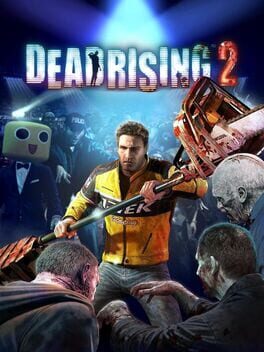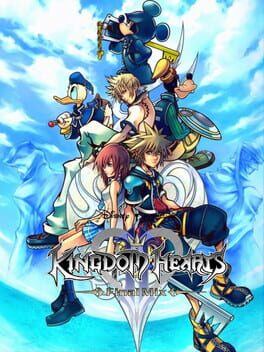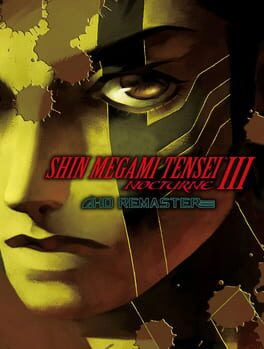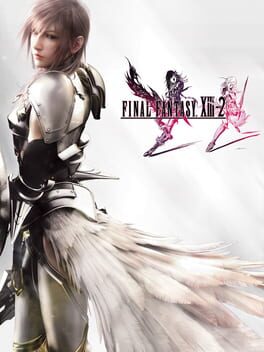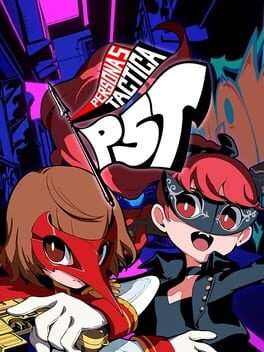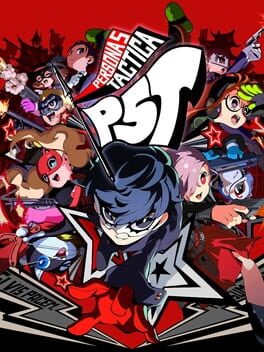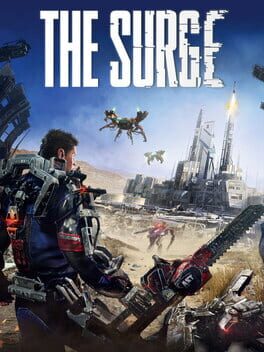Phvortt
15 Reviews liked by Phvortt
Dead Rising 2
2010
The a.i is fixed, enemies are actually fun to fight, and the combining weapons feature is a perfect addition. Up until the ending, this game is perfect and super replayable. However, the ending section sucks. The mutated zombies are unbalanced and makes navigating the map go back to the abyssmal standards of Dead Rising 1. However, still the majority of the game is really good.
Dead Rising 2
2010
A bit of a letdown compared to the first game. The game is on a worse engine compared to the first, and it's too easy outside of some psychopath fights. Survivors have had their AI and health improved (you only need one), and combo weapons, while cool, are so overtuned compared to non-combo weapons. The point of the first game was you could use anything you saw, and this game has nerfed those weapons into the dirt. The game was developed by a different, western studio supervised by the originals, and it clearly shows: they had an appreciation for the first game, but really didn't get all the nuances of it. And that rot would show as they got more and more control of the franchise.
Final Fantasy XIII-2
2011
Final Fantasy XIII-2
2011
Final Fantasy XIII
2009
The Hanging Edge
The name shared by both the first area and its accompanying background music in FFXIII immediately transmit the sense of tension and exhilaration that both of them contain. As you gain control of Lightning, the area around you is chaotic, crawling with enemies, rife with conflict. The slightly panicked piano pops into your ears, compelling you to start to move forward. Yet then it is also a sweeping strings section that bursts in as well, conveying the scale of everything happening around you. It makes you want to soak in the stunning environment, the excitement of your surroundings. But there is only one way forward, and the only option left is to run.
It wouldn't be true to say that XIII is defined by freneticism necessarily, but it is such a striking element that it bears mentioning nonetheless. That first level sets a tone that doesn't let up for quite some time, one that deserves immense credit for how committed they were to it. The paths only have one way to go because it's the only way the characters CAN go. They are hunted by what feels like the entire world around them, while pitted against the ticking time bomb they've been stuck with, and still not even able to keep from fighting with each other. Needless to say, the design directly serves the story by adding that tension for them to spin great character moments out of. This is a group of people struggling against circumstance, compelled to keep moving forward when they don't really have a direction. Splitting the party up works great for this, as it allows for Lightning/Hope and Sazh/Vanille to play off of each other and simultaneously get strong character development. These sections work so well because of how focused they are, but the resolution is equally as satisfying too.
The thrilling nature of the story plays very well into the design of the combat system as well, contributing to the consistent sense of energy that the game has. The original ATB system was inspired by Formula One races, yet this system is the first time that dream feels fully realized. The segmented ATB bar gives that sense of actual speed, making it rewarding to act as quickly as possible. It also rewards attentiveness, as even with just auto-attack the timing of your actions is important. Strategy is more important than ever as well, due to Paradigms allowing for mid-battle adaptability. The stagger bar is a great mini-time limit that incentivizes all of these things. It all works quite excellently, and while it takes some time to fully unfurl it is easily one of the best battle systems in the franchise. If anything, I wish it could have been taking advantage of even more. The menus could be even snappier, the time between switching paradigms even faster, and even enemies with more emphasis placed on countering player inattentiveness.
I mentioned before that the fast-paced style of the game isn't the only one it has, and the marked shift it undergoes later is interesting in a lot of ways. There's an inherent satisfaction in stepping into a vast open area after hours of being essentially trapped, a really well done contrast that shows just how foreign Pulse is compared to Cocoon. However, it also feels disappointingly compromised in a lot of ways. A side mission based structure is a fun idea, but it mostly functions as a way to still lead you from point A to B rather than giving a real sense of exploration. Having a lot of enemies that are meant to be avoided is a neat idea for an area consumed by nature, but it also feels at odds with how enjoyable the freedom of the combat is. It also just feels unnecessarily trial-and-error heavy, which just feels like wasting time. Of course the dungeons at the end of this area are quite strong, but it still feels like it missed on the potential at hand and just went back to what works.
This is just one chapter though ultimately, so it's hard to say it ruins the game. One aspect that it does show that I found to be much more detrimental, however, is that the story starts to crack pretty hard around this point. The story thrives off character moments for most of its run time, but it feels somewhat aimless once it moves past that. Of course, this isn't to say it's bad or anything. Oerba is a particularly impactful moment, letting a long lost town just completely speak for itself for the most part is an excellent contrast to the excess of Cocoon. Outside of this though, the story fails to entirely deliver on the promise it makes. We know that Cocoon has elements of a police state, that people like Cid resist it, and that its citizens support its crimes, yet it never feels like we get solid resolutions to these aspects of the world. I don't think answering all of these necessarily makes for a great story, however I don't think pinning them all on the influence of a Fal'cie does either. The main villain has plans that are greater than we know, but that also makes it hard to get attached to the main characters fight against him. The idea that defying fate is the only reason you need to fight is a good theme, yet I don't think that means it couldn't have been more as a whole.
Even if it falls short of being my favorite in such a stacked franchise, I want to reiterate that I think XIII still resonates quite well all around. It's hard to not be impressed by how bold this game is when it pays off in so many ways. I heard most of my life about what a disaster it is, and now it feels like that just speaks to what a tough time it was for JRPGs to get a fair shake. Rather than a fundamentally broken mess, it's a game that could have tapped into its potential even more. Yet what is there is still quite special in its own way, and for that I hope it manages to get more recognition some day.
The name shared by both the first area and its accompanying background music in FFXIII immediately transmit the sense of tension and exhilaration that both of them contain. As you gain control of Lightning, the area around you is chaotic, crawling with enemies, rife with conflict. The slightly panicked piano pops into your ears, compelling you to start to move forward. Yet then it is also a sweeping strings section that bursts in as well, conveying the scale of everything happening around you. It makes you want to soak in the stunning environment, the excitement of your surroundings. But there is only one way forward, and the only option left is to run.
It wouldn't be true to say that XIII is defined by freneticism necessarily, but it is such a striking element that it bears mentioning nonetheless. That first level sets a tone that doesn't let up for quite some time, one that deserves immense credit for how committed they were to it. The paths only have one way to go because it's the only way the characters CAN go. They are hunted by what feels like the entire world around them, while pitted against the ticking time bomb they've been stuck with, and still not even able to keep from fighting with each other. Needless to say, the design directly serves the story by adding that tension for them to spin great character moments out of. This is a group of people struggling against circumstance, compelled to keep moving forward when they don't really have a direction. Splitting the party up works great for this, as it allows for Lightning/Hope and Sazh/Vanille to play off of each other and simultaneously get strong character development. These sections work so well because of how focused they are, but the resolution is equally as satisfying too.
The thrilling nature of the story plays very well into the design of the combat system as well, contributing to the consistent sense of energy that the game has. The original ATB system was inspired by Formula One races, yet this system is the first time that dream feels fully realized. The segmented ATB bar gives that sense of actual speed, making it rewarding to act as quickly as possible. It also rewards attentiveness, as even with just auto-attack the timing of your actions is important. Strategy is more important than ever as well, due to Paradigms allowing for mid-battle adaptability. The stagger bar is a great mini-time limit that incentivizes all of these things. It all works quite excellently, and while it takes some time to fully unfurl it is easily one of the best battle systems in the franchise. If anything, I wish it could have been taking advantage of even more. The menus could be even snappier, the time between switching paradigms even faster, and even enemies with more emphasis placed on countering player inattentiveness.
I mentioned before that the fast-paced style of the game isn't the only one it has, and the marked shift it undergoes later is interesting in a lot of ways. There's an inherent satisfaction in stepping into a vast open area after hours of being essentially trapped, a really well done contrast that shows just how foreign Pulse is compared to Cocoon. However, it also feels disappointingly compromised in a lot of ways. A side mission based structure is a fun idea, but it mostly functions as a way to still lead you from point A to B rather than giving a real sense of exploration. Having a lot of enemies that are meant to be avoided is a neat idea for an area consumed by nature, but it also feels at odds with how enjoyable the freedom of the combat is. It also just feels unnecessarily trial-and-error heavy, which just feels like wasting time. Of course the dungeons at the end of this area are quite strong, but it still feels like it missed on the potential at hand and just went back to what works.
This is just one chapter though ultimately, so it's hard to say it ruins the game. One aspect that it does show that I found to be much more detrimental, however, is that the story starts to crack pretty hard around this point. The story thrives off character moments for most of its run time, but it feels somewhat aimless once it moves past that. Of course, this isn't to say it's bad or anything. Oerba is a particularly impactful moment, letting a long lost town just completely speak for itself for the most part is an excellent contrast to the excess of Cocoon. Outside of this though, the story fails to entirely deliver on the promise it makes. We know that Cocoon has elements of a police state, that people like Cid resist it, and that its citizens support its crimes, yet it never feels like we get solid resolutions to these aspects of the world. I don't think answering all of these necessarily makes for a great story, however I don't think pinning them all on the influence of a Fal'cie does either. The main villain has plans that are greater than we know, but that also makes it hard to get attached to the main characters fight against him. The idea that defying fate is the only reason you need to fight is a good theme, yet I don't think that means it couldn't have been more as a whole.
Even if it falls short of being my favorite in such a stacked franchise, I want to reiterate that I think XIII still resonates quite well all around. It's hard to not be impressed by how bold this game is when it pays off in so many ways. I heard most of my life about what a disaster it is, and now it feels like that just speaks to what a tough time it was for JRPGs to get a fair shake. Rather than a fundamentally broken mess, it's a game that could have tapped into its potential even more. Yet what is there is still quite special in its own way, and for that I hope it manages to get more recognition some day.
Final Fantasy XIII
2009
Final Fantasy XIII
2009
Final Fantasy XIII
2009
Persona 3 Reload
2024
This DLC for "Persona 5 Tactica" is really interesting. In some ways, I actually prefer it over the main game. The music is way more unique, the environments are fun and creative, and the story resonated way more with me (which is pretty funny considering the stories are nearly identical on a thematic and structural level).
Plus, being able to play as Kasumi and Akechi again was such a delight. It basically feels the same as playing the the third semester in "Persona 5 Royal", the dynamic is just perfect, the three characters bounce off each other so well. It is a little weird how it takes place during November though, and the fact that you have to play this to unlock Kasumi and Akechi in the main game ONLY as characters you can play as in new game plus is just weird. Like, I get why, but it just feels like an odd decision.
Mechanically, this DLC plays mostly the same as the main story, but with one big twist: paint. In this mode, when you attack someone or hit a paint barrel, it causes paint of your color to be splashed on the floor. When an enemy is on your color, they're now both vulnerable to any kind of attack and cannot make any attacks whatsoever. The same applies for the player as well.
Initially, I liked this mechanic. It gave the DLC its own identity, setting it apart from the main game. But as it went on, I quickly grew tired of it. At it's best, it's a quirky fun mechanic that makes you think about what you're doing a little bit more. At its worst, it completely invalidates half of the mechanics from the base game, making combat way more infuriating. It was so unbelievably annoying to have myself placed in a perfect position where I normally wouldn't get knocked down, only for an enemy to run over and shoot me with paint once, and then have another enemy run over and instantly down me and give them another turn. It made cover feel meaningless in some stages. Sometimes the mechanic worked, and sometimes it didn't. I think I overall like it, but I don't think it really adds enough to justify itself as a mechanic.
And after all of that, there's still the issue of the price. This DLC costs way too much and honestly isn't even worth all of it. If it was maybe ten dollars or even fifteen I'd be okay with it, but twenty is just too much to ask for. I only got it because I'm an Atlus shill, but the normal player absolutely should not bother with this unless you love the characters.
Overall, this DLC has some strong points, to the extent that I occasionally prefer it over the main game; but the frustrating mechanics and ridiculous price tag make me hesitant in recommending it. If you really like Kasumi and Akechi, it might be worth the money, but that's really going to come down to your personal preference and nothing more.
Plus, being able to play as Kasumi and Akechi again was such a delight. It basically feels the same as playing the the third semester in "Persona 5 Royal", the dynamic is just perfect, the three characters bounce off each other so well. It is a little weird how it takes place during November though, and the fact that you have to play this to unlock Kasumi and Akechi in the main game ONLY as characters you can play as in new game plus is just weird. Like, I get why, but it just feels like an odd decision.
Mechanically, this DLC plays mostly the same as the main story, but with one big twist: paint. In this mode, when you attack someone or hit a paint barrel, it causes paint of your color to be splashed on the floor. When an enemy is on your color, they're now both vulnerable to any kind of attack and cannot make any attacks whatsoever. The same applies for the player as well.
Initially, I liked this mechanic. It gave the DLC its own identity, setting it apart from the main game. But as it went on, I quickly grew tired of it. At it's best, it's a quirky fun mechanic that makes you think about what you're doing a little bit more. At its worst, it completely invalidates half of the mechanics from the base game, making combat way more infuriating. It was so unbelievably annoying to have myself placed in a perfect position where I normally wouldn't get knocked down, only for an enemy to run over and shoot me with paint once, and then have another enemy run over and instantly down me and give them another turn. It made cover feel meaningless in some stages. Sometimes the mechanic worked, and sometimes it didn't. I think I overall like it, but I don't think it really adds enough to justify itself as a mechanic.
And after all of that, there's still the issue of the price. This DLC costs way too much and honestly isn't even worth all of it. If it was maybe ten dollars or even fifteen I'd be okay with it, but twenty is just too much to ask for. I only got it because I'm an Atlus shill, but the normal player absolutely should not bother with this unless you love the characters.
Overall, this DLC has some strong points, to the extent that I occasionally prefer it over the main game; but the frustrating mechanics and ridiculous price tag make me hesitant in recommending it. If you really like Kasumi and Akechi, it might be worth the money, but that's really going to come down to your personal preference and nothing more.
Persona 5 Tactica
2023
É sempre muito agradável rever os personagens incríveis de Persona 5 e mesmo sendo um spin-off, P5T é lindo, tem uma ótima OST, um combate divertido e boa narrativa.
Mas o principal triunfo mesmo são as adições dos personagens novos, Erina e Toshiro. Principalmente a Erina é uma personagem tão insanamente boa que eu queria que ela tivesse existido no Persona 5 Royal.
Infelizmente, o último reino é HORRÍVEL, sendo uma barrigada completa. O jogo tem 4 chefes e no último reino, temos que batalhar novamente contra 3 deles, o que é inacreditável e claramente filler.
Felizmente o desfecho faz valer a pena a jornada.
Como sempre, Persona 5 me faz sentir em casa ❤️
Mas o principal triunfo mesmo são as adições dos personagens novos, Erina e Toshiro. Principalmente a Erina é uma personagem tão insanamente boa que eu queria que ela tivesse existido no Persona 5 Royal.
Infelizmente, o último reino é HORRÍVEL, sendo uma barrigada completa. O jogo tem 4 chefes e no último reino, temos que batalhar novamente contra 3 deles, o que é inacreditável e claramente filler.
Felizmente o desfecho faz valer a pena a jornada.
Como sempre, Persona 5 me faz sentir em casa ❤️
The Surge
2017
The seed of a decent idea buried under a pile of aggressively mediocre design concepts. I actually sort of appreciated the slow, plodding combat, but as with most Deck13 games, the overall aesthetic is so insipid that any minor pleasures are largely drowned out.
The interesting yet unrefined idea at the heart of this game is the dismemberment mechanic. Your melee attacks can target specific body parts and you can cut off various appendages in order to get better weapons and / or armor. This is fun at first, but eventually it becomes easy to spam, and the game ultimately doesn't do enough to build in complexity or alleviate the redundancy of repeatedly facing down the same basic enemy types (80% of the enemies in this game fall into one of two tired archetypes - there's quick-light-armor-man and slow-heavy-weapon-man).
Minor mechanical amusements aside, the narrative and aesthetic choices are consistently dull and uninspired. The story takes an extremely weak swing at Souls-style obliqueness, but ultimately ends up being bog standard sci-fi claptrap - it features some cartoonishly irresponsible corporate barons and A.I. run amuck, along with a smorgasbord of other well-trodden clichés.
I might've been able to partially look past the hackneyed narrative if it weren't for the fact that the dire lack of imagination is also reflected in the level and environmental design. After a tolerable start in a post-apocalyptic junkyard, most of the rest of the game takes place in a bland and anonymous maze of generic tech hallways. There's a decent diversion in a corporate suite towards the end, but that simply didn't make up for the confusion, the boredom, and the abject lack of interesting things to see. Skipping ahead to the more playable sequel is advisable.
The interesting yet unrefined idea at the heart of this game is the dismemberment mechanic. Your melee attacks can target specific body parts and you can cut off various appendages in order to get better weapons and / or armor. This is fun at first, but eventually it becomes easy to spam, and the game ultimately doesn't do enough to build in complexity or alleviate the redundancy of repeatedly facing down the same basic enemy types (80% of the enemies in this game fall into one of two tired archetypes - there's quick-light-armor-man and slow-heavy-weapon-man).
Minor mechanical amusements aside, the narrative and aesthetic choices are consistently dull and uninspired. The story takes an extremely weak swing at Souls-style obliqueness, but ultimately ends up being bog standard sci-fi claptrap - it features some cartoonishly irresponsible corporate barons and A.I. run amuck, along with a smorgasbord of other well-trodden clichés.
I might've been able to partially look past the hackneyed narrative if it weren't for the fact that the dire lack of imagination is also reflected in the level and environmental design. After a tolerable start in a post-apocalyptic junkyard, most of the rest of the game takes place in a bland and anonymous maze of generic tech hallways. There's a decent diversion in a corporate suite towards the end, but that simply didn't make up for the confusion, the boredom, and the abject lack of interesting things to see. Skipping ahead to the more playable sequel is advisable.
